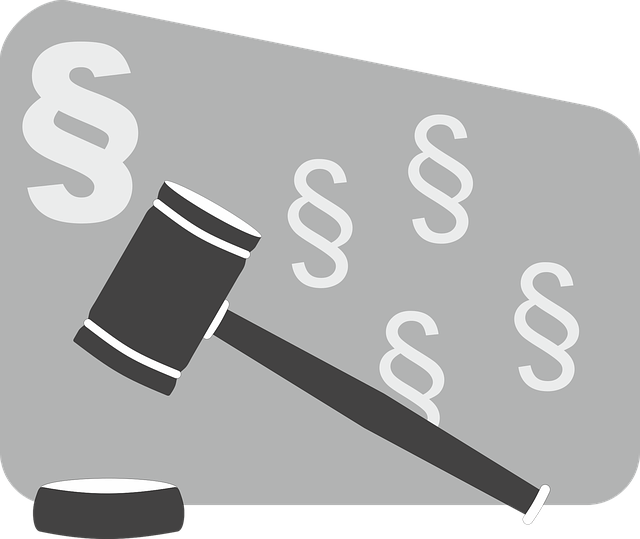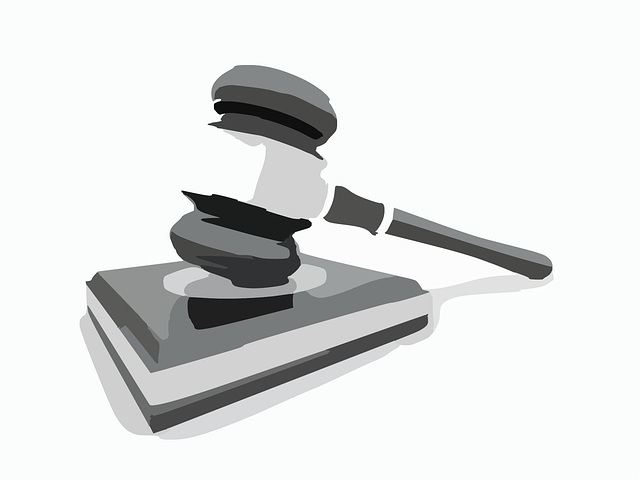White-collar crime, encompassing fraud, embezzlement, and tax evasion, requires specialized legal expertise due to its complex nature. Specialized law enforcement units investigate these cases, focusing on financial evidence and witness interviews. Effective strategies aim to dismantle fraudulent operations while mitigating penalties through robust defenses and alternative sentencing. Case studies, like those of a corporate executive and tech startup founder, demonstrate successful penalty reduction through strategic defense preparation and rehabilitation efforts.
In the intricate landscape of criminal law, white-collar crimes pose unique challenges. These offenses, often characterized by fraud, embezzlement, or corruption, demand a nuanced approach from enforcement agencies. This article explores strategies for mitigating penalties in white-collar crime cases. We delve into understanding these crimes, the crucial role of law enforcement in investigations, and legal defenses that can lessen consequences. Through real-world case studies, we highlight successful mitigation strategies, offering insights into navigating these complex legal matters. Focus on Mitigating Penalties in White-Collar Crime Cases drives our exploration.
- Understanding White-Collar Crimes: Definitions and Examples
- The Role of Criminal Law Enforcement in Investigating These Offenses
- Strategies for Mitigating Penalties: Legal Defenses and Sentencing Alternatives
- Case Studies: Successful Mitigation Strategies in Practice
Understanding White-Collar Crimes: Definitions and Examples

White-collar crimes, often referred to as “crimes of business and finance,” encompass a range of illegal activities typically characterized by their non-violent nature but significant economic impact. These offenses include fraud, embezzlement, tax evasion, and money laundering, among others. Unlike traditional street crimes, white-collar crimes are committed in the boardrooms and offices of corporations, often involving complex financial schemes and intricate legal documentation. Understanding these crimes involves recognizing that they are not just isolated incidents but part of a broader spectrum of high-stakes cases that can have far-reaching consequences for individuals, businesses, and even entire industries.
The unique challenge in prosecuting white-collar crimes lies in their intricate nature, making it crucial for defendants to seek expert legal counsel. A well-versed white-collar defense attorney can help mitigate penalties by navigating complex regulatory environments, identifying procedural errors, and presenting compelling arguments on behalf of the accused. Across the country, many high-stakes cases have turned on the strategic use of these defenses, underscoring the importance of a robust understanding of both the crimes and their legal defenses in managing potential consequences.
The Role of Criminal Law Enforcement in Investigating These Offenses

Criminal law enforcement plays a pivotal role in investigating white-collar crime cases, which often involve complex financial schemes and sophisticated frauds. Specialized units within law enforcement agencies are tasked with unravelling these intricate offenses, ensuring justice is served while also focusing on mitigating penalties for accused individuals. The initial stages of an investigation involve gathering digital evidence, interviewing witnesses, and analyzing financial transactions to build a robust case against the suspects.
Effective criminal law enforcement strategies aim to dismantle fraudulent operations and hold perpetrators accountable without unduly burdening innocent parties. A well-structured general criminal defense can result in the complete dismissal of all charges, especially when addressing issues like procedural errors or insufficient evidence. Across the country, many legal experts emphasize the importance of proactive investigation techniques and fair legal processes to prevent arbitrary convictions and ensure a just outcome for all involved.
Strategies for Mitigating Penalties: Legal Defenses and Sentencing Alternatives

In white-collar crime cases, mitigating penalties is a crucial aspect of legal strategy. Effective strategies involve leveraging robust legal defenses and exploring alternative sentencing options. One key approach is to challenge the prosecution’s evidence, scrutinizing its strength and any potential weaknesses or inconsistencies. This can lead to a reduction in charges or, in some instances, an acquittal. Additionally, white-collar defense attorneys often emphasize the client’s lack of criminal intent, demonstrating that their actions were not malicious but rather the result of poor judgment or misunderstanding of legal requirements.
Beyond these tactics, sentencing alternatives play a significant role in mitigating penalties. Defendants and their lawyers can advocate for probation over imprisonment, emphasizing rehabilitation and community service as means to atone for their actions. In some jurisdictions, diversion programs offer an opportunity to divert offenders from the traditional criminal justice system, providing them with specialized support and education aimed at preventing future crimes. These strategies, coupled with a compelling argument for leniency based on personal circumstances or remittance, can significantly reduce sentences in white-collar crime cases across the country.
Case Studies: Successful Mitigation Strategies in Practice

In the realm of criminal law enforcement, case studies offer valuable insights into successful mitigation strategies, particularly in white-collar crime cases. One notable example involves a corporate executive accused of financial fraud. Through meticulous preparation and a strategic defense, the defendant’s legal team managed to achieve extraordinary results. They presented compelling evidence showcasing the executive’s lack of intent, highlighting mitigating factors that significantly reduced the potential penalties. This approach not only limited the individual’s liability but also preserved the respective business’s reputation across the country.
Another successful case involves a tech startup founder facing charges of data privacy violations. The legal team employed a multi-faceted strategy, emphasizing the company’s swift cooperation with authorities and implementation of enhanced security protocols. By demonstrating a commitment to rectifying mistakes and ensuring compliance, the startup was able to mitigate penalties and avoid severe consequences. This approach underscores the importance of proactive measures in white-collar crime cases, showcasing how businesses can foster change while achieving favorable outcomes.
In conclusion, understanding white-collar crimes, effective criminal law enforcement strategies, and mitigating penalties are essential components of navigating these complex cases. By recognizing the nuances of these offenses, leveraging legal defenses, and considering alternative sentencing, it’s possible to achieve just outcomes while fostering a fair and balanced justice system. Mitigating penalties in white-collar crime cases not only reduces harsh sentences but also encourages cooperation, promotes rehabilitation, and ensures a more proportional response to the underlying conduct.






